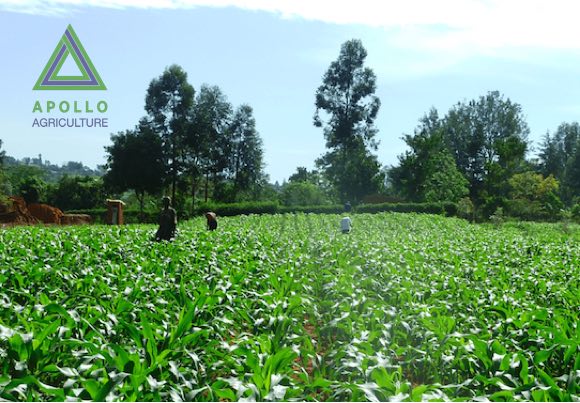The agriculture sector in Kenya contributes 26% to its gross domestic product, employs over 40% of its population, and accounts for 65% of its export earnings. This importance to the country’s economic livelihood makes the sector a key area of focus for innovators. This is owned by agritech startups like Apollo Agriculture, creating ripples in the region.
The Kenya-based agritech startup plans to double the number of farmers it serves across the region and introduce other products that deliver more value per acre of land by the end of 2022. This spurt from raising $40 million Series B funding in the equity round led by Softbank Vision Fund 2.
The startup is also scouting for growth opportunities in East and West Africa.
“We are also developing products that deliver more value per acre. That could be new crops that enable customers to earn more money,” said Eli Pollak, co-founder, and CEO of Apollo Agriculture.
This latest funding saw participation from the Chan Zuckerberg Initiative, Yara Growth Ventures, Endeavor Catalyst, CDC, and existing investors, including Anthemis Exponential Ventures, Flourish Ventures, Leaps by Bayer, SBI, Breyer Capital, and TO Ventures Food.
Apollo’s Origin
Apollo Agriculture was founded in 2016 by Eli Pollak, Benjamin Njenga, and Earl St Sauver in Kenya to help farmers in emerging markets maximize their profits by using agronomic machine learning, remote sensing, and mobile phones to deliver a customised package of credit, high-quality farm inputs, and advice that can double farm yields. Apollo assesses farmer credit risk and customizes each package to a farmer’s specific location using satellite data, soil data, farmer behaviour data, and crop yield models.
Read Also: Egypt’s Credit Fintech Lucky is Set to Increase Market Leadership with $25M funding
Apollo started by working with maize farmers but helping them diversify to other high-yielding crops has been its area of focus.

“We began with maize. Maize is not perfect, but it has a profound advantage: nearly every farmer plants it across East Africa. This gives us a place to earn farmers’ trust and deliver value immediately. We believe that the pathway from subsistence farming to farming as a business means partnering with that farmer and using our machine learning models to identify the farmers with the best prospects of graduating to higher-profitability crops.” Pollak said.
How Apollo Helping Farmers Double Their Output
Before now, the agritech startup has received over $16 million in debt funding over the years for onward lending. Since it closed a $6 million Series A funding in 2020, Apollo claims it has grown 10 times, accelerated by-product financing.
By the end of 2021, Apollo had worked with 100,000 farmers and had a network of “over a thousand” retailers and 5,000 agents spread across the country.
The agents onboard farmers to the Apollo platform while retailers use the startup’s “checkout app” to handle point of sale, inventory, source wholesale orders, and access to trade credit.
Read Also : Connecting African Creatives with Remote Jobs in the US; Meaningful Gigs Raises $6M Seed
Pollak and St Sauver had previously worked at The Climate Corporation in the U.S., where they helped farmers use data in making production decisions. With an urge to create a more significant impact, they launched Apollo to help farmers outside the U.S. double more than their output and shift from subsistence to commercial farming.
One of its products includes insurance, which its partners offer, including Pula, the Kenya-based insurtech.
“We have designed our business to strengthen farming systems, and if you think about climate change, we bundle insurance with every credit we sell to protect the borrower,” said Pollak.
Alexia Yannopoulos, Investment Director at Softbank Investment, commented, “In the face of sustained macroeconomic and geopolitical volatility, feeding the world is one of society’s most important challenges. Apollo’s platform offers a one-stop-shop solution to help small-scale farmers improve crop and livestock outputs in emerging regions. Embedding valuable financial services like credit, insurance and advice into the supply chain are critical in supporting a more efficient and sustainable global food chain.”




